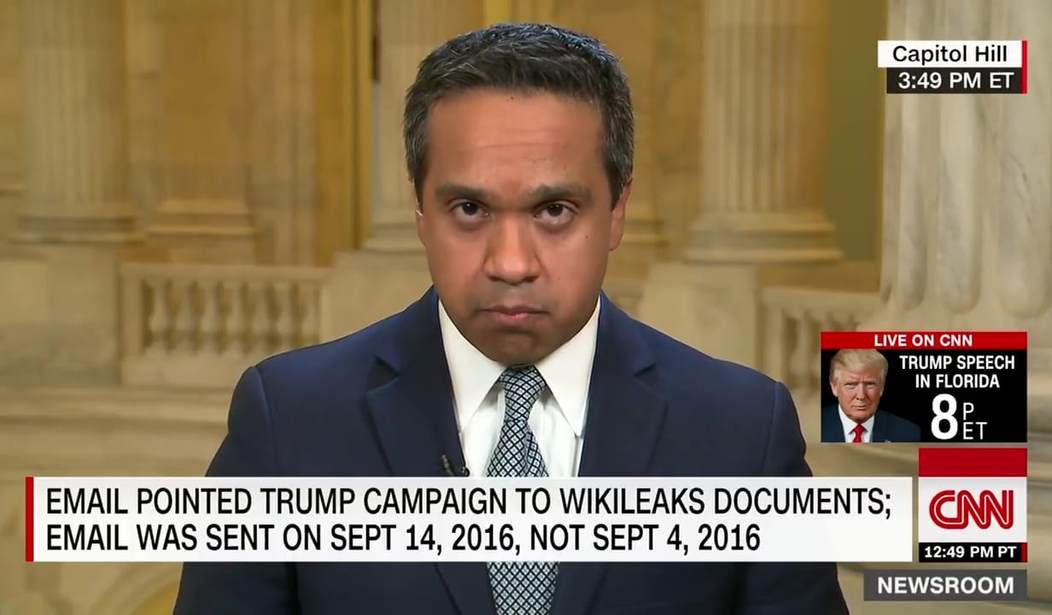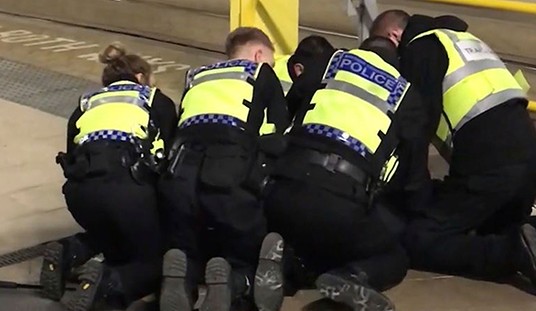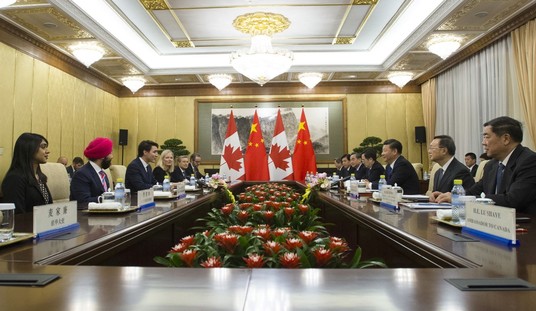News reporting is about truth-telling, but there are no claims to infallibility because stories themselves can be no more infallible than the people who tell them. People misremember and forget, and sometimes sources can act maliciously.
But in the high-stakes world of political reporting, where false stories can crash the financial markets (as one did just a week ago) or media can destroy people’s lives with the press of a “publish” button, should those reporting fake news be given the “benefit of the doubt”?
That’s the question after CNN completely botched yet another story attacking President Trump and his family while pushing the Trump-Russia collusion narrative.
The CNN story yesterday morning claimed that Donald Trump, Jr. had received an email on September 4, 2016, with a link to the WikiLeaks archive of the DNC hack more than a week before the hacked emails were made public.
This was then presented as proof that the Trump campaign had colluded with WikiLeaks during the campaign, and thus Russian intelligence. The “Trump colluded with Russian intelligence” angle was pushed hard by CNN analysts:
If the Wikileaks decryption key email was genuine, it’s an open and shut story: Russian intelligence actively helped the Trump campaign.
— Michael Weiss (@michaeldweiss) December 8, 2017
Other national news outlets, including NBC and CBS, claimed to have independently confirmed CNN’s report.
CNN pushed the story heavily at the top of the hour through lunchtime. But at around 1:00 p.m. the Washington Post and then The Daily Caller lowered the boom: the email, sent by some random Trump fan, was sent on September 14 after the DNC hack archive had already been made public.
https://twitter.com/sarahcwestwood/status/939195519188000768
The Daily Caller published the actual email clearly showing that CNN had the date — and thus the entire story — wrong.
But CNN had cited “multiple sources” as confirming their story, and invoked that even when they finally corrected their story more than two hours after it had come apart.
CNN's initial reporting of the date on an email sent to members of the Trump campaign about Wikileaks documents, which was confirmed by two sources to CNN, was incorrect. We have updated our story to include the correct date, and present the proper context for the timing of email
— CNN Communications (@CNNPR) December 8, 2017
When CNN reporter Manu Raju went on air with their correction, he divulged that they had not even seen the email before they ran with the story.
And more evidence appeared that CNN had been careless with how they had handled the story.
https://twitter.com/seanmdav/status/939269149666226176
That notwithstanding, CNN’s Brian Stelter — host of the ironically named “Reliable Sources” program — began to circle the wagons on behalf of his colleagues.
A CNN spokeswoman says there will not be disciplinary action in this case because, unlike with Brian Ross/ABC, @MKRaju followed the editorial standards process. Multiple sources provided him with incorrect info.
— Brian Stelter (@brianstelter) December 8, 2017
And other media cartel associates rushed to defend Raju and CNN’s credibility.
Well. I'd rather stick up for two hardworking reporters who had a bad day than participate in an Internet hate mob questioning their motivations and the journalism enterprise.
— Byron Tau (@ByronTau) December 8, 2017
You guys ringlead an internet hate mob almost every single morning starting at 8:30am. You just don't like mobs angry at your Tribe, you mean. https://t.co/w8GKTpX50M
— Ursus, Director of Weather and Banana Programming (@AceofSpadesHQ) December 8, 2017
Erik Wemple, the Washington Post’s media reporter, said that Raju should be given the “benefit of the doubt”:
Another thought on @CNN foul up today: I have read hundreds if not thousands of @mkraju stories, and they have been almost without exception unimpeachable. He’ll doubtless get no benefit of the doubt from his network’s motivated critics, though he deserves it.
— ErikWemple (@ErikWemple) December 9, 2017
The problem is that Raju, Wemple, Stelter, Tau and the whole media cartel are not in the “benefit of the doubt” business.
Each and every day, whether fairly or unfairly, the media cartel targets people, potentially destroying careers, families, and lives, without the slightest thought of giving them the “benefit of the doubt.”
So why should the media cartel be held to a more self-serving benevolent standard?
And given their lackluster performance (putting it charitably) in pushing the Trump-Russia narrative over the past year, the media cartel has completely exhausted their credibility without any serious ramifications.
Consider CNN’s own performance before yesterday’s debacle:
https://twitter.com/topsecretk9/status/939263914222563328
7 Times CNN Botched The News In 2017 https://t.co/32pUHBhfRd
— Daily Caller (@DailyCaller) December 9, 2017
CNN has gone out of their way to invoke the “Facts First” mantle, and its on-air personalities have angrily pushed back on the president’s “fake news” attacks:
Don’t let anything distract you from the facts. #FactsFirst pic.twitter.com/MZkrJhBTdc
— CNN (@CNN) November 14, 2017
We are real news Mr. President. #realnews
— Jim Acosta (@Acosta) February 18, 2017
Yet this is not even the only story CNN has botched in the past 24 hours:
CNN anchor Alisyn Camerota falsely claims that the entire Trump dossier has been corroborated by U.S. intel agencies.
Washington Examiner on 11/19: FBI & DOJ officials have told congressional investigators in that they have NOT been able to verify or corroborate the dossier. pic.twitter.com/WaRvj1RRM5
— Ryan Saavedra (@RealSaavedra) December 8, 2017
.@CNN this is definitely not @RajShah45 but it is #FakeNews pic.twitter.com/tS9QBndBw0
— Stephanie Grisham (@PressSec) December 9, 2017
Hey @cnni headline should read – Israel airstrikes target #Hamas following terrorist rockets hitting Israel. THEN – continued tensions after Trumps #Jerusalem move. Please don't oversimplify your headlines, it's misleading and inaccurate. pic.twitter.com/qaa4WDk0Xh
— LTC (R) Peter Lerner (@LTCPeterLerner) December 9, 2017
And the rest of the media cartel has not exactly covered itself in glory either:
https://twitter.com/davidharsanyi/status/939253734873366528
The media's Russia probe meltdown: 3 screw-ups in one weekhttps://t.co/uAGY8lIPiA pic.twitter.com/6zcuz4nKoB
— Axios (@axios) December 8, 2017
In reporting on CNN's major debacle today (one shared with MSNBC), the NYT notes all the major false stories from the last week alone on Trump and/or Russia – all in the same direction https://t.co/kZ1XPCjvEx – the similar major mistakes over the last 6-9 months are legion. pic.twitter.com/gPEHlhHJSi
— Glenn Greenwald (@ggreenwald) December 8, 2017
CNN error extends run of journalistic mishaps https://t.co/KqClMEYNUt pic.twitter.com/1OoPraPUEu
— POLITICO (@politico) December 9, 2017
I remember Watergate pretty well, and I don't remember anything like this level of journalistic carelessness back then. The constant stream of 'bombshells' that turn into duds is doing much more to damage the media than anything Trump could manage. https://t.co/SA3Frx4KNE
— Walter Russell Mead (@wrmead) December 8, 2017
So, given how reckless the media has been in covering this administration, and in particular the Trump-Russia narrative, why should anyone in the viewing public be willing to give the media cartel the “benefit of the doubt,” as Erik Wemple maintains?
The repeated missteps and outright fake news constantly tear at the fabric of our collective political life and institutions. In light of their reckless behavior, their pleas for us to give them the “benefit of the doubt” increasingly fall on deaf ears.
And when their attitude is “give no quarter,” why should anyone else be willing to give them any in return?









Join the conversation as a VIP Member